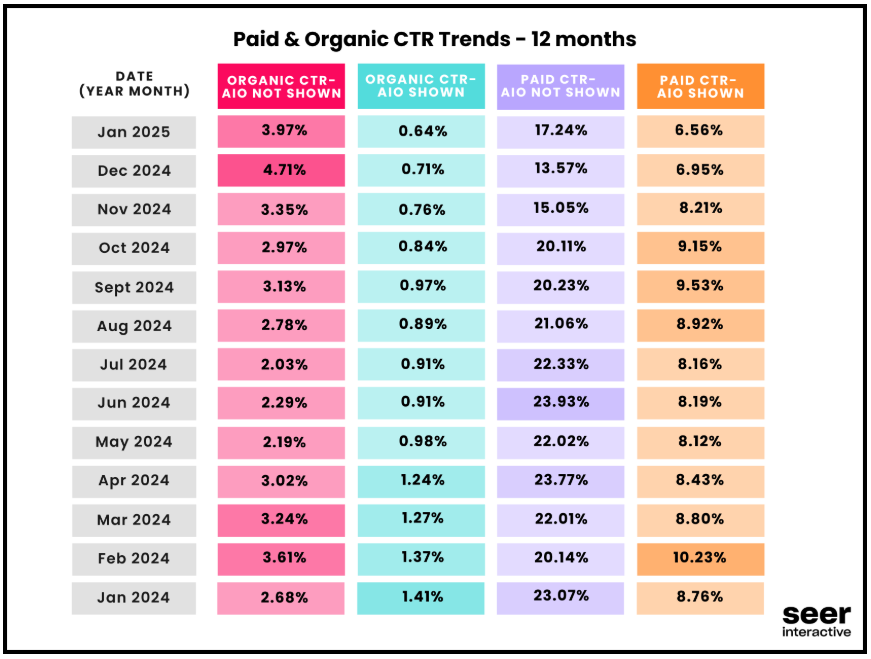Building an SEO Strategy in 2025

By Nick Nelson
Algorithms. Always-on strategies. Artificial intelligence. The arena of search engine optimization is being transformed by a vast array of different forces – and we’re still only at the top of the alphabet.
For business leaders and marketers, attempting to keep pace in this environment is challenging, but highly rewarding. While the emergence of AI and evolving user habits are certainly reshaping the future of search, organic SEO remains a fixture for digital growth, now and going forward.
Sizing up the SEO landscape in 2025, a few key trends stand out:
- Continuing disruption from algorithm shifts: From late 2023 to 2024, updates like the Helpful Content Update (HCU) and core updates have reshaped rankings, particularly impacting smaller sites. Recovery strategies must adapt to new priorities.
- AI and generative search impact: Google’s AI Overviews (AIO), formerly SGE, are pushing organic results down the SERP, causing challenges for click-through rates and driving more zero-click searches.
- Core Web Vitals evolution: Interaction to Next Paint (INP) replaced First Input Delay (FID) as a CWV metric. Site quality signals like these act as tie-breakers in ranking competitive pages.
- The rise of Reddit in search results: As of July 2024, Reddit ranked fifth among U.S. sites in terms of visibility in Google’s organic search results — up from 68th a year prior. While potentially related to a licensing deal signed between the two brands, this development also underscore’s Google’s increased focus on authentic, experience-based content.
Our guide to building an SEO strategy in 2025 will help you tie modern best practices into the enduring fundamentals of the craft.
What is an SEO strategy?
SEO strategy is a cornerstone of digital marketing. It is the framework that guides your approach to gaining visibility in search engine results pages (SERPs) for terms valuable to your business.
Strategic SEO efforts lead to a sustainable and cost-efficient flow of organic traffic, bringing relevant people to your website or landing pages. As third-party tracking cookies fade out and paid media rates rise, organic SEO is an increasing priority for marketing leaders who want to foster long-term growth with limited budgets.
Key pillars of an SEO strategy
Certain components that would have appeared on this list a decade or two ago have disappeared, as Google has evolved its search algorithm to be driven by user engagement rather than traditional ranking signals. “Keyword stuffing” is a thing of the past – the only way to rank for competitive terms is through quality content that delivers on search intent.
With that said, there is a model that B2B marketers can use to reliably drive SEO success when aided by quality data and expertise. Build around these six SEO pillars:
- Keyword research
<li …read more
Source:: Top Rank Blog








